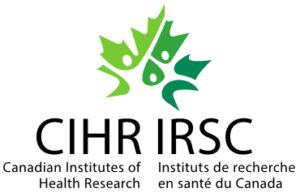About the research
Children with very severe cardiopulmonary failure in Canada are supported with Extracorporeal membrane oxygenation called ECMO. Surgeons connect children to an artificial lung and pump using large tubes in their neck vessels (artery and vein). When children no longer need this support, they are separated from ECMO. Historically, when separated, the neck vessels are tied off. Over the last decade, surgeons have started to repair the neck vessels instead.
We do not know if later in life, children are better off with or without repaired vessels. The goal of this study is to compare the outcomes between children who had the vessels tied off and those who had them repaired. We will evaluate health-related quality of life and cognitive function. As this has not been studied previously, the results will be used to guide future surgical practice.
Please stay tuned for more information coming in 2022.
What is ECMO?
ECMO stands for Extracorporeal Membrane Oxygenation. It is an advanced life support system, that provides heart and breathing support for people with severe heart or lung problems. ECMO uses a machine that acts as an artificial lung. Blood from the child will pass through the machine, which will remove carbon dioxide and add in oxygen before returning to the child.
Projects
Brain and ECMO: Vascular integrity of survivors
Neonates and children with severe cardiopulmonary failure may be supported with extracorporeal membrane oxygenation called ECMO. Surgeons connect them to an artificial pump and a lung using large cannulas in neck or femoral vessels (artery and vein). Historically, at the time of separation, these vessels were tied off. Over the last decades, vessel reconstruction is undertaken. We do not know if later in life, adolescents and young adults are better off with or without reconstructed vessels. The purpose of this retrospective study is to verify the feasibility of conducting a future cross-sectional study and compare participants with tied off vessels and reconstructed vessels and respond to CIHR reviewer recommendations.
Brain and ECMO: Cerebrovascular reactivity and patient-oriented outcomes
Meet the study team
The Hospital for Sick Children (SickKids)
Toronto, ON
Site Principle Investigator
Anne-Marie Guerguerian
Project Manager
Geraldine Goco
Co-Investigators and knowledge users
Osami Honjo
Renee Sananes
Katia Sinopoli
Mark Todd
Patient and Family Advisor
Francine Buchanan
CHEO
Ottawa, ON
Site Investigators
Sonny Dhanani
Gyaandeo Maharajh
Mariella Vargas-Guiterrez
Faculty of Medicine, Dalhousie University
Halifax, NS
Site Investigator
Neeraj Verma
Stollery Children’s Hospital
Edmonton, AB
Site Investigators
Laurance Lequier
Lindsay Ryerson
Ben Sivarajan


